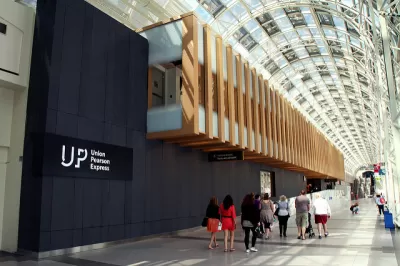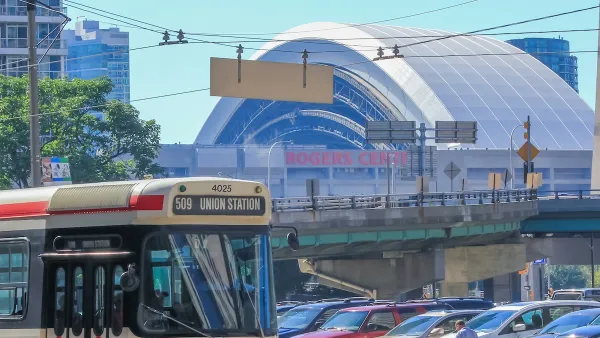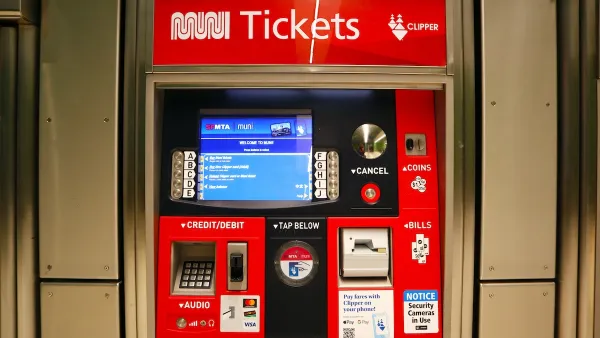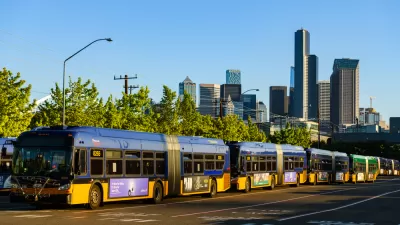Faced with the underwhelming performance of the newly opened UP Express, Toronto transit officials did something drastic: they slashed the cost of a ride.

Sean Marshall reports on lessons learned from the ongoing evolution of the Union Pearson Express (UP Express), Toronto's16-month-old rail connection between Pearson International Airport and Union Station in downtown Toronto.
For the first year of its operation, the UP Express operated well below its ridership targets. "In June 2015, UP Express had an average daily ridership of 2,858; in July, the average daily ridership was 2,383," according to Marshall. "Metrolinx expected that daily ridership would grow to 5,000 within a year."
Earlier this spring, just under a year before the line's first birthday, Metrolinx took decisive action and reduced the one-way cash fare "from $27.50 to $12, and from $19 to $9 with a Presto card, and fares between Union and Bloor and Weston stations were reduced to match the GO Transit fares for the same trips." Previously "the one-way fare between Union Station and Pearson airport was set at $27.50, or $19.00 with a Presto card. Discounts and special fares were available for families, airport workers, and same-day return trips," explains Marshall.
The results, in terms of ridership, have been unequivocally positive. "Since the new fare structure was introduced, UP Express ridership has more than tripled. By June 2016, the daily average ridership increased to 7,657, or 49 passengers per train."
FULL STORY: Ridership Has Tripled on Toronto’s Union Pearson Express

Maui's Vacation Rental Debate Turns Ugly
Verbal attacks, misinformation campaigns and fistfights plague a high-stakes debate to convert thousands of vacation rentals into long-term housing.

Planetizen Federal Action Tracker
A weekly monitor of how Trump’s orders and actions are impacting planners and planning in America.

In Urban Planning, AI Prompting Could be the New Design Thinking
Creativity has long been key to great urban design. What if we see AI as our new creative partner?

Massachusetts Budget Helps Close MBTA Budget Gap
The budget signed by Gov. Maura Healey includes $470 million in MBTA funding for the next fiscal year.

Milwaukee Launches Vision Zero Plan
Seven years after the city signed its Complete Streets Policy, the city is doubling down on its efforts to eliminate traffic deaths.

Portland Raises Parking Fees to Pay for Street Maintenance
The city is struggling to bridge a massive budget gap at the Bureau of Transportation, which largely depleted its reserves during the Civd-19 pandemic.
Urban Design for Planners 1: Software Tools
This six-course series explores essential urban design concepts using open source software and equips planners with the tools they need to participate fully in the urban design process.
Planning for Universal Design
Learn the tools for implementing Universal Design in planning regulations.
Gallatin County Department of Planning & Community Development
Heyer Gruel & Associates PA
JM Goldson LLC
City of Camden Redevelopment Agency
City of Astoria
Transportation Research & Education Center (TREC) at Portland State University
Jefferson Parish Government
Camden Redevelopment Agency
City of Claremont





























